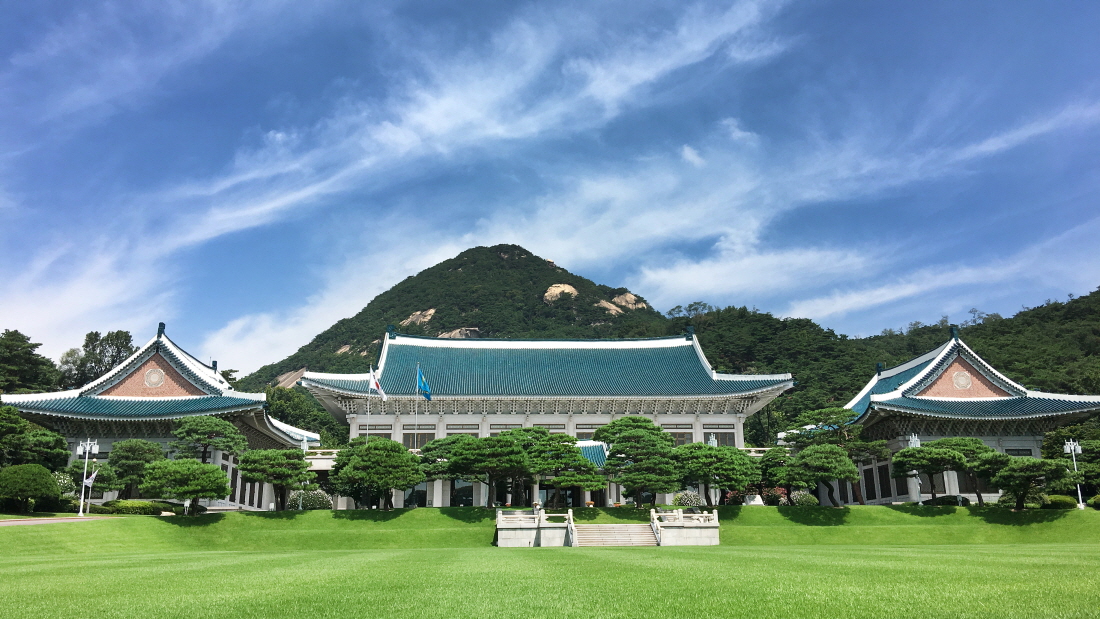이 웹사이트는 제19대 대통령 임기 종료에 따라 대통령기록관이 「대통령기록물 관리에 관한 법률」에 의해 이관받아 서비스하는 대통령기록물입니다. 자료의 열람만 가능하며 수정 · 추가 · 삭제는 불가능합니다.
다만, 「개인정보보호법」에 의하여 개인의 정보를 보호받기 원하시는 분은 관련 내용(요청자, 요청내용, 연락처, 글위치)을 대통령 웹기록물 담당자(044-211-2253)에게 요청해 주시면 신속히 검토하여 조치해 드리겠습니다. 감사합니다.
SPEECHES & REMARKS
BRIEFINGS
Briefing Regarding Public Demands to Completely Ban Chinese Nationals from Entering Korea

Regarding this issue, the Government has made its stance clear on several occasions, including an explanation by Prime Minister Chung Se-kyun, who is serving as head of the Central Disaster and Safety Countermeasures Headquarters. Nonetheless, as debate continues unabated, we are additionally providing a more detailed explanation of our reasoning.
The Government decided not to impose a sweeping ban on the entry of Chinese nationals after carefully reviewing how best to respond to the situation while maintaining public safety as the top priority.
First, the special entry procedures put in place by the authorities are working effectively.
The Government tightened entry procedures for those traveling from China beginning February 4, taking measures to thoroughly identify such travelers and minimize their entry. Inbound Chinese nationals are directed to a separate entrance station, where disinfectant is being sprayed and body temperatures are closely monitored.
In addition, all Korean and non-Korean nationals must provide their local addresses and phone numbers at the immigration checkpoint upon arrival. Only after their phone numbers have been verified in the presence of an immigration officer are entrants allowed to pass through.
During the special entry procedures, entrants have to install a “self-diagnosis app” first and input personal information before entering the Republic of Korea. With regard to the mandatory app installation for both Koreans and foreign nationals – entering not only from China but also Hong Kong and Macao – and other actions taken by domestic quarantine authorities, a foreign media outlet called them “unparalleled.”
Second, as a result, inbound Chinese travelers have been monitored in a secure manner.
As of today, the number of Chinese patients stands at 11 among the 1,595 confirmed cases in Korea.
Among these Chinese patients, four are presumed to have entered Korea after being infected in China before the special entry procedures were put in place. All four arrived before January 31. Three of them have now completely recovered, and the other one remains in a stable condition.
Among the others are two Chinese patients who were confirmed on February 1 and 2. One is a Chinese national who entered from Japan, and the other is his spouse. Since February 4 when the special entry procedures took effect, five Chinese people have been confirmed, but they did not arrive recently from China.
No entrant from China has tested positive since February 4 when the tight-knit quarantine network started to operate. Given this, there is no benefit in completely blocking the entry of all Chinese people.
Regarding the 13,436 Chinese students who entered the country through these special entry procedures, local universities have conducted intensive monitoring over two weeks in cooperation with the Government, and not a single student has tested positive so far.
Third, not many Chinese nationals have been entering Korea recently. As Hubei Province is now under lockdown, the number of Chinese coming from that region is “zero.” The number of Chinese nationals who arrived in Korea from areas other than Hubei Province was 1,404 on February 26 and 1,824 on February 25.
In fact, the number of Koreans entering China has been increasing in February while the number of inbound Chinese has been decreasing. Specifically, on February 27, a total of 1,093 Chinese arrived in Korea, and 1,406 Koreans departed for China.
When the number of Chinese nationals entering Korea has dropped into the range of 1,000 per day, completely banning their entry could have repercussions for our people and is thus undesirable. This is the Government’s stance.
Fourth, we should heed the announcement that the number of newly confirmed cases in China has begun falling by a large degree.
According to Chinese authorities, the number of newly confirmed cases stood at 1,749 on February 18 and continued to decline from 820 on February 19 to 406 on February 25.
The number of newly confirmed cases outside of Hubei Province is noteworthy as that province is already under travel restrictions. Outside the province, the number of newly confirmed cases has been falling each day since February 21, when it was 31, to 18 (February 22), 11 (February 23), 9 (February 24) and 5 (February 25). We should continue to monitor the situation while taking the changing circumstances into consideration.
Fifth, government measures correspond to World Health Organization guidelines on how to respond to infection diseases.
International specialists point out that a blockade, or complete ban on the entry of Chinese nationals, would have limited effect. It is the international consensus that infectious diseases can be overcome not through a blockade but through global solidarity and cooperation.
For the five aforementioned reasons, the Government is implementing special entry procedures for Chinese nationals rather than totally prohibiting them from entering the country. Regrettably, some people assert that the Government is not completely banning the entry of Chinese nationals because it is mindful of China’s reaction. We would like to reiterate that the Government has rationally considered both the efficacy of the quarantine process and the interests of the Korean people.



